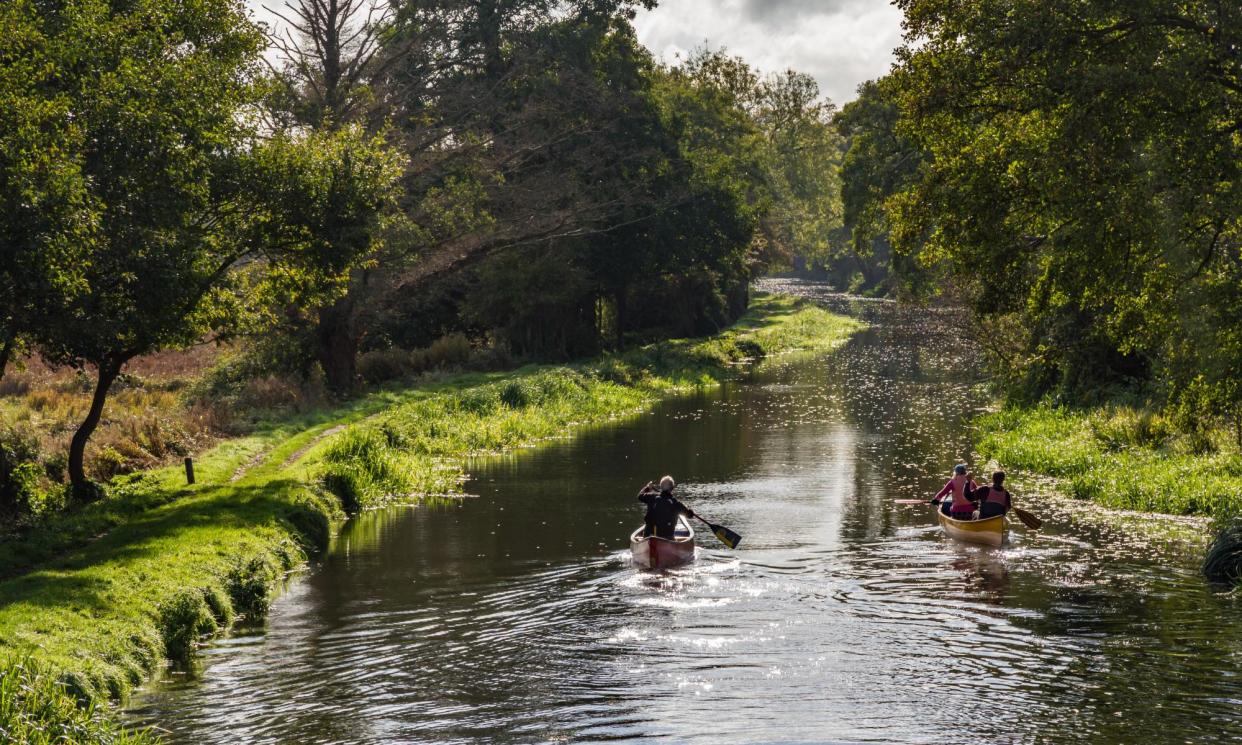England won’t adopt EU river pollution rules for pharma and cosmetics firms

New EU rules which introduce “polluter pays” principles to get pharmaceutical and cosmetic companies to pay for the pollution they cause in rivers will not be adopted by the government in England, as campaigners say the country is falling behind.
Lawmakers in Europe have signed off on an update to the urban waste water treatment (UWWT) directive, which is to further tighten restrictions on pollution. More nutrients from agricultural waste and sewage will have to be removed from waterways under the new rules. It also for the first time applies standards to micropollutants such as chemicals from pharmaceutical waste.
The update also introduces a crucial measure called “extended producer responsibility”, which means cosmetic and pharmaceutical companies will be asked to contribute to the cost of treating wastewaters if they are causing chemical pollution. The EU has specifically said it wishes to implement a “polluter pays” principle. This means costs for cleaning chemicals out of waterways will be partially covered by the responsible industry, rather than by water bills or public budgets. The new rule will require the most polluting industries to pay at least 80% of the cost for micropollutant removal.
The EU said this would “lead to cleaner rivers, lakes, groundwater and seas all around Europe”.
Chloe Alexander, a senior campaigner at the CHEM Trust, said: “The UK must urgently mirror EU measures to make polluters pay to remedy the problems they cause, as well as to ban the use of harmful chemicals at source, before they harm our health and pollute our environment. Currently, the UK public and environment continue to be exposed to a growing number of harmful chemicals that are getting banned in EU countries.
“The British public should not have to foot the bill for the huge potential costs of cleaning up our environment from chemical pollution caused by poor chemical management.”
England and Wales could end up lagging behind when it comes to water pollution, as other parts of the UK will adopt extra regulations on micropollutants. Northern Ireland, under the Windsor framework, has to adhere to urban waste water treatment updates as it is obliged to have some of the same environmental rules as the Republic of Ireland. The Guardian understands that the Scottish government is proposing to adopt similar regulations to UWWT as it is trying to keep regulations in line with the EU so the country could more easily rejoin the bloc in the event of Scottish independence.
Michael Nicholson, the head of environmental policy at the Institute for European Environmental Policy, said: “If the updated EU law on wastewater treatment comes into force in the next few months, as is likely, this would be a major step forward in tackling pollution from cosmetic and pharmaceutical products which enter our rivers and seas and endanger public health and aquatic life alike. It would also open up a significant divergence with the approach taken to clean wastewaters in the UK. The UK should take note and strongly consider following suit.”
The new rules will also introduce systematic monitoring of microplastics in the inlets and outlets of urban wastewater treatment plants as well as in the sludge, and there will be monitoring of “forever chemicals” such as PFAS. There are no plans for England to introduce any such compulsory monitoring at present.
Libby Peake, a senior policy analyst at Green Alliance, said: “The UK government acted quickly to ban some microbeads from wash-off cosmetics in 2018 and was rightly applauded for it. But that ban, which the government still refers to as world-leading, contained some gaping holes that plenty of microplastics continue to slip right through.
Related: Britain is becoming a toxic chemical dumping ground – yet another benefit of Brexit | George Monbiot
“In fact, the partial ban covers less than 10% of intentionally added microplastics. People will be surprised to learn that all sorts of cosmetics – lipstick, suncream, and so on – can still legally contain plastics in the UK, as can medicinal products, paints, detergents, and fertilisers. The EU is moving to ban a far greater range of these insidious plastic particles, and the UK should quickly follow suit.”
A UK government spokesperson said: “We already have a polluter pays principle in law under the Environment Act. Many of our statutory schemes also equal or go beyond EU targets.
“On top of this we are taking tough action to hold polluters to account, quadrupling water company inspections, fast-tracking £180m investment to cut sewage spills and changing the law so that polluters face unlimited penalties from the Environment Agency, which are quicker and easier to enforce.”


